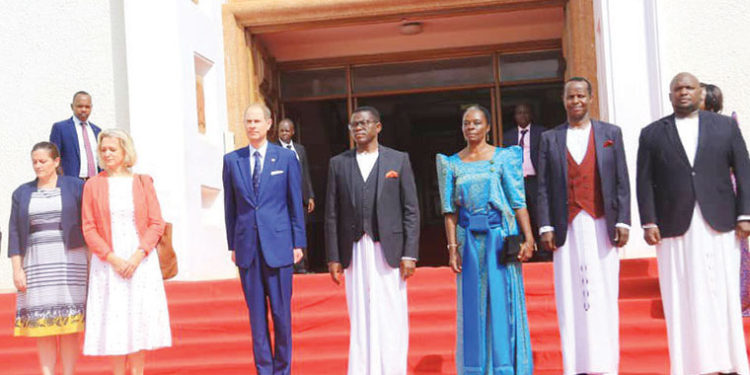By THE OBSERVER UG
Last week, the chair of The Duke of Edinburgh’s International Award, Prince Edward, visited Uganda on a three-day visit to grow awareness of the award, in addition to other causes.
The Duke of Edinburgh arrived in Uganda on March 18 and paid a courtesy visit to President Yoweri Kaguta Museveni at State House Entebbe where they discussed issues of mutual benefit, before Museveni agreed to be patron to the award in Uganda.
On March 19, together with the minister of State for Foreign Affairs, Henry Okello Oryem, King Charles III’s younger brother attended the award’s Africa Regional Conference at Speke Commonwealth Resort Munyonyo to highlight the vital role non-formal education and learning can play in a young person’s development, and to discuss the sustainability of the initiative in Africa.
On Wednesday, his Royal Highness was hosted by the Katikkiro of Buganda Charles Peter Mayiga at Bulange-Mengo to witness the signing of a memorandum of understanding that established a formal collaboration between Buganda Kingdom and The Duke of Edinburgh’s International Award to encourage more young people to take part in the programme.
He then met students participating in the global Non–Formal Education and Learning programme and took part in an Award in Action trip at Uganda Wildlife Education Centre, where award participants are currently volunteering.
He was welcomed by the state minister for Tourism Martin Mugarra, who took him around the zoo to view different animals, and even fed some of them. Prince Edward wrapped up his visit with an evening reception at the British High Commissioner to Uganda, Kate Airey’s residence in Nakasero.

During the reception, the national director of the Award in Uganda, Katende Mukiibi said, “The royal visit has come at a time when The Duke of Edinburgh’s International Award Uganda has set an ambitious plan of enabling as many young people as possible in all regions of the country to access the award. The Duke has not only enabled us to mobilise key stakeholders that will support the long-term sustainability of the programme but also re-emphasised the position of Non- Formal Education and Learning in the holistic development of young people.”
During his visit, Edward also interacted with Ugandan youth leaders during a youth dialogue on Sustainable Development Goals which was hosted by Kabojja International School, Buziga. The youth shared their positive impact in the areas of climate, IT, women empowerment and entrepreneurship.
The Duke of Edinburgh’s International Award Uganda is a non-formal education and learning framework that encourages young people to find their purpose, passion and place in the world.
It was launched in Uganda in 1995, initially as the Source of the Nile Award Scheme. It has since expanded to reach young people in more than 20 districts in Central, Eastern, Northern and Mid-western Uganda and it has been delivered to more than 200,000 young people since inception.
The award is delivered through partner youth-focused organizations such as the Scouts, Girl Guides, Red Cross, Boys and Girls Brigades, and several uniformed and non-uniformed school youth groups, among others.







Discussion about this post